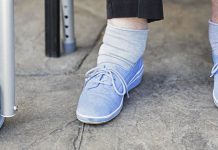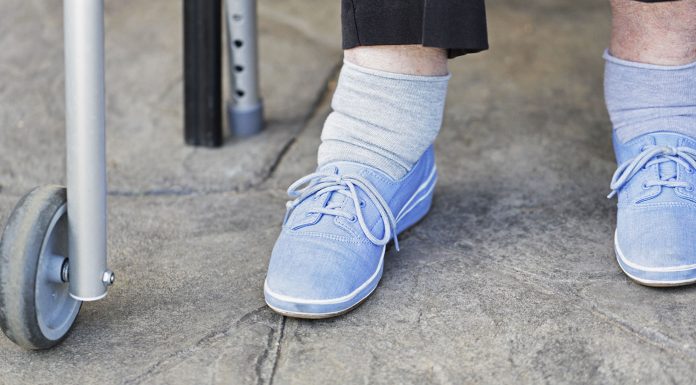Nursing is a global profession, with New Zealand’s nurses trained in 89 countries. How well are we doing at nurturing culturally diverse nursing teams?
The simple act of nurses greeting each other at the start of a shift can be the source of cultural confusion.
“My staff still call me ‘ma’am’ – why don’t they just call me by my first name?”
“My charge nurse manager jokes she’ll fire me if I don’t call her by her first name, but I’m just being respectful.”
As New Zealand’s nursing workforce becomes increasingly multicultural, so does the potential for cultural misunderstandings at the nurses’ station, the bedside and the tearoom.
Kiwi-born nurses can feel uncomfortable when new migrant nurses chat in the corridor in a language other than English. And new migrant nurses can struggle to understand Kiwi-born nurses’ informality, jokes and jargon. Both can struggle to understand each other’s accents.
Integration is definitely a two-way street. New migrant nurses need help and time to adjust to Kiwi nursing culture and Kiwi-trained nurses need help to understand and respect the cultural differences that their new workmates bring to the ward or rest home. But integrating nurses from diverse cultures into a cohesive and collegial nursing team can be a challenge.
Nearly a decade ago Sue Lim, national director of eCALD, and her team developed courses, and eventually a free online toolkit, to help do just that. The courses were developed initially to meet the needs of the migrant nursing workforce but the Toolkit for Health Workforce Working in a Culturally Diverse Workplace is also aimed firmly at helping Kiwi nurses and nurse managers (and others in the health workforce) to better understand, appreciate and work with their culturally diverse workmates and build a collegial team culture (see more about eCALD at the bottom of this article).
“It’s important for all staff because everyone – regardless of whether you are migrant or New Zealand-born – needs to understand the cultural context that they are working in and needs cultural competencies,” says Lim.
Her colleague Dr Annette Mortensen, who is a nurse and eCALD’s research and development project manager, also points out it is not just migrant nurses from Asia and other CALD (culturally and linguistically diverse) countries who can face issues in adjusting to nursing in New Zealand, but also migrant nurses coming from the UK, North America and Europe.
NZ reliant on migrant nurses
New Zealand has long had a reliance on overseas-trained nurses, with more than a quarter of New Zealand’s nursing workforce being trained overseas. But the makeup of that migrant workforce has increasingly changed over the past decade, with the numbers of migrant nurses from the traditional sources of the UK and Ireland falling away and the number of migrant nurses from Asia, particularly the Philippines and India, steadily growing. Those two countries alone were the source of 1,047 of the 1,433 overseas-trained nurses registered in New Zealand last year.
As New Zealand becomes more culturally diverse – Asian people made up nearly 12 per cent of the population in 2014 and nearly one in four Aucklanders – so does the Kiwi-trained nursing workforce. Just under 20 per cent of newly registered New Zealand qualified nurses in 2012–13 identified as being from an Asian ethnic group, compared with 11 per cent identifying as Māori and six per cent as Pacific.
This increase in cultural diversity in the nursing workplace is not all smooth sailing. A major survey in 2012 of new members of the New Zealand Nurses Organisation (NZNO) – both New Zealand qualified nurses (NZQNs) and internationally qualified nurses (IQNs) – found evidence of cracks in the multicultural nursing workforce.
Researchers Drs Leonie Walker and Jill Clendon reported some NZQNs commenting on “too many IQNs”, expressing stereotypes about particular cultures and making negative comments about some IQNs’ training, cultural awareness or English skills.
Both NZQNs and IQNS reported witnessing racism towards Asian and Indian nurses – particularly from patients – including very high numbers reporting patients refusing to be cared for by a “foreign nurse”. IQNs themselves reported feeling discrimination, frustration and disappointment at their career opportunities in New Zealand.
Mortensen says the NZNO research illustrates what can go wrong in a multicultural workforce when integration is not successful. She also recognises that for some long-standing Kiwi-born nurses the changing makeup of the workforce also comes with a feeling of loss of community and collegiality.
“I’m in a workforce that isn’t like me and it’s not like it used to be”, is how some Kiwi nurses are feeling, believes Mortensen. “There’s a confusion and sadness about not knowing how to change with the times.”
Leadership needed to nurture multicultural teams
Bringing together new migrant nurses and Kiwi-born nurses into a multicultural team that works well together takes good leadership skills.
Lim offers a face-to-face programme for frontline managers, like clinical nurse managers, on managing culturally diverse teams, which is now embedded into the management training programmes offered at all three DHBs in the Auckland region. (Also available are courses targeted at helping migrant nurses adjust to the Kiwi workplace and a workshop designed for culturally diverse healthcare teams.)
Lim says managers have to understand that for migrant nurses the process of adjusting and adapting to the New Zealand workplace can be difficult.
“A lot of migrant nurses can feel full of anxiety, discomfort and resentment at being asked to integrate because it is a difficult process.”
Mortensen adds that NZ-born managers, coming from the host culture, have to be conscious that the power balance is in their favour, so need to be ready to go the ‘extra mile’ to be welcoming and friendly.
What eCALD advises clinical nurse managers to do is to help new migrant nurses adjust with small changes, take time to engender trust and be transparent about their expectations. This includes being aware that many migrant nurses are coming from different and often more hierarchical workplace cultures where speaking up at a meeting without being asked – or calling your manager by their first name – would be considered rude and disrespectful. Lim says as a new migrant from Malaysia 30 years ago it took her three months to feel comfortable calling her manager by her first name.
Managers need to give new migrant staff time and, if possible, mentor them or give them a buddy to guide them as they adapt. Managers also need to be ready to be a role model, to risk making mistakes and learning from them, and to accommodate difference. (Mortensen says she knows of one rest home manager who modified the uniform for her Muslim staff so it met both health and safety standards and was culturally appropriate.)
Lim stresses that team ground rules need to be set by managers, including zero tolerance for discrimination and stereotyping and setting clear, fair house rules on what can be a common cause of tension – new migrant staff talking together in their native language. She says this risks offending some patients and some staff, because they worry that the person talking in the native language may be talking about them. She says when managing a team of Korean and Chinese staff she allowed staff to chat in their own language in the lunchroom but they needed to make a friendly acknowledgement of anybody else who entered the room.
Developing cultural awareness and competency
Once again, multiculturalism is a two-way street.
For all nurses to be culturally safe practitioners, they need insight into their own culture and acknowledge how that influences their interactions with other nurses in the team – as well as patients – from cultures or ethnicities other than their own.
Along with being aware of New Zealand’s bicultural heritage stemming from the Treaty of Waitangi, nurses also need to accept the reality that nursing, like New Zealand, is becoming increasingly culturally and ethnically diverse.
A major section of the eCALD toolkit is aimed at all staff in a multicultural team and places a strong emphasis on building cultural competence, being self-reflective about any prejudices they might hold and how to work through any cross-cultural issues they encounter.
This includes thinking about what culture is, the dangers of stereotyping people, and of being ethnocentric and viewing one’s own culture as the only right way to do things and viewing all others as inferior. It also includes increasing understanding of how different cultural values can impact on communication – such as different attitudes about making eye contact, saying ‘no’, speaking up and interpreting body language and facial expressions.
The toolkit also emphasises that it is a myth that food, music, dance or other visible aspects of culture are the best way to better understand cultural diversity: “It is the invisible and unstated differences that present the most challenges and violations of trust and respect. These [differences] are held largely in the values, and in the expectations, goals and styles of communications.
“In fact, many cultures have values and styles that are almost opposite to each other. If we assess meaning based on patterns in our own culture, we are likely to misinterpret, misunderstand and be confused.”
Lim and Mortensen also stress that while offering cultural competency education is important, it isn’t enough without an organisation-wide cultural diversity and inclusion policy in place. Countries with similar and even less migration and cultural diversity than New Zealand already have such policies in place in their health organisations.
Such a policy here could help to reduce the risk of those cultural misinterpretations and confusions that can get in the way of good teamwork and good patient care.
About CALD and eCALD
CALD refers to culturally and linguistically diverse groups who are migrants and refugees from Asian, Middle Eastern, Latin American and African backgrounds.
Since 2010 eCALD has been providing a variety of free, accredited e-learning courses for health professionals working with culturally and linguistically diverse (CALD) groups in New Zealand – including their fellow health professionals.
The Ministry of Health-funded eCALD service is based at Waitemata District Health Board’s Institute for Innovation and Improvement. Around 24,000 learners have completed a CALD course since 2010, with more than a third of those being registered and enrolled nurses.
Find more information on free e-learning CALD courses and resources at www.ecald.com.



















